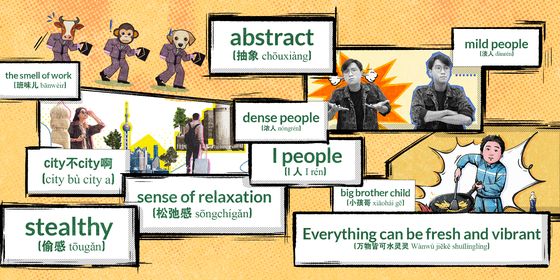Google, Baidu, or Sogou—which translation software gets internet slang right (or the least wrong)?
It’s not easy to translate from Chinese to English: there’s not an equivalent for every term, there are differences in sentence structure, and let’s not even go into the connotations of the words. Above all else, slang poses a headache for would-be translators. So how do computers fare? We’ve collected a list of slang terms and tested them on popular language translation platforms—Google, Baidu, and Sogou—to see which will emerge as the most accurate.
1. 背锅(bēiguō)

Google: Wrong. A literal translation of the two characters, but 背 has two meanings, “back” and “to carry [a thing] on one’s back”; in this case, Google chose wrong. Still, the pinyin reading is a great feature of Google Translate, though that’s not always accurate either—while 背 is pronounced bèi in the first meaning, it’s bēi in the second.

Baidu: Wrong. Reversing the order of the words in English gets you warmer.

Sogou: Spot on! Where you say scapegoat, the Chinese say “scape-wok,” since “wok” and “fault” share a similar pronunciation in Chinese.
2. 吃瓜群众 (chī guā qúnzhòng)

Google: Wrong; there’s no cannibalism here.

Baidu: Close, but not quite. Literally, “melon-eating masses,” this term originally came from a bystander who was interviewed for a road accident and claimed to have seen nothing as he was eating melon at the time, thereby causing great hilarity and giving birth to this new term. This term is used for the apathetic masses who don’t really understand or care about an event happening around them.

Sogou: The closes translation in this case.
3. 不明觉厉 (bù míng jué lì)

Google: Wrong. It’s like Google tried to translate the first two words, then just gave up.

Baidu: Correct. The term is short for the sentence “Though I don’t understand what you are saying, it seems to be awesome.” Often found in online comments, when ordinary users applaud an expert’s response to a topic.

Sogou: Also correct. Bonus points for the exclamation mark.
4. 然并卵(Rán bìng luǎn)

Google: Wrong. Google dismissed the first word (for reasons unclear—maybe it sounds like an interjection?) and gave literal translations to the other two.

Baidu: Correct, although toned down. Literally, the term is short for “However, it’s of no f**king use.”

Sogou: Also correct.
5. 你咋不上天? (nǐ zǎ bú shàngtiān)

Google: Wrong (though kind of old-timey); not even the correct word order.

Baidu: Kind of, if you stretch it. Literally, the phrase is, “Why don’t you just fly to the sky?” Originally from the Dongbei dialect, netizens brought this sarcastic term into the mainstream.

Sogou: Also correct. Again with the exclamation mark!
In conclusion, out of five slang terms, zero points for Google, three (and a half? Not sure about “rubberneck”) for Baidu and five for Sogou. Looks like Sogou is the best translating service when it comes to popular slang terms, being not only the most accurate but the most up-to-date. For added fun, try 种草, 欧气, 胡建人 and 你瞅啥 on these sites.












